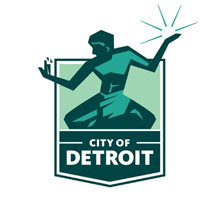| Outcome | Compliant |
2 violations cited :
Code 3-304.12
Dispensing utensil(s) improperly stored with handle in product
FULL FOOD CODE:
During pauses in FOOD preparation or dispensing, UTENSILS shall be stored: (A) In the FOOD with their handles above the top of the FOOD and the container; (B) In FOOD that is not POTENTIALLY HAZARDOUS with their handles above the top of the FOOD within containers or EQUIPMENT that can be closed, such as bins of sugar, flour, or cinnamon; (C) On a clean portion of the FOOD preparation table or cooking EQUIPMENT (D) In running water, such as dipper well. (E) In a clean, protected location if the UTENSILS, such as ice scoops, are used only with a FOOD that is not POTENTIALLY HAZARDOUS; or (F) In a container of water maintained at a temperature of at least 135° F.
During pauses in FOOD preparation or dispensing, UTENSILS shall be stored: (A) In the FOOD with their handles above the top of the FOOD and the container; (B) In FOOD that is not POTENTIALLY HAZARDOUS with their handles above the top of the FOOD within containers or EQUIPMENT that can be closed, such as bins of sugar, flour, or cinnamon; (C) On a clean portion of the FOOD preparation table or cooking EQUIPMENT (D) In running water, such as dipper well. (E) In a clean, protected location if the UTENSILS, such as ice scoops, are used only with a FOOD that is not POTENTIALLY HAZARDOUS; or (F) In a container of water maintained at a temperature of at least 135° F.
Core
Corrected on 8-31-2022
Code 4-602.13
Nonfood contact surface(s) soiled
FULL FOOD CODE:
NonFOOD-CONTACT SURFACES of EQUIPMENT shall be cleaned at a frequency necessary to preclude accumulation of soil residues.
NonFOOD-CONTACT SURFACES of EQUIPMENT shall be cleaned at a frequency necessary to preclude accumulation of soil residues.
Core
Not corrected
